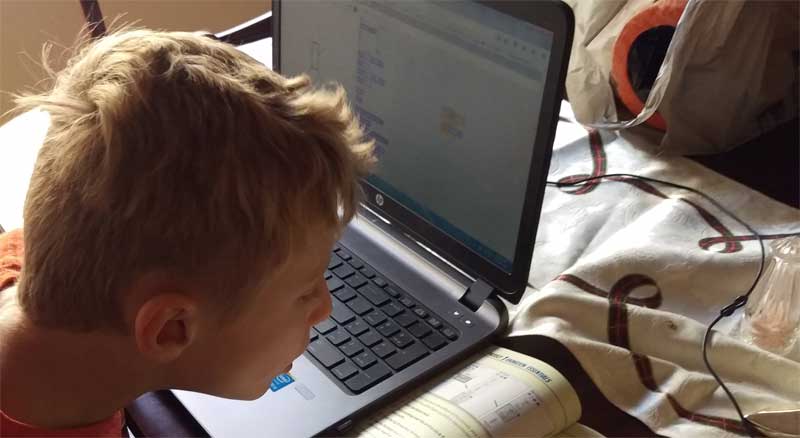As I walked through the door after a typical, grinding, hot commute, my wife approached me. After the usual, “Hi honey! How was your day?” small-talk, she paused and whispered: “Are you ready to cry?”
That’s rarely a good sign so I mentally braced myself for whatever she had to say. Instead, she showed me the following:

Welcome Back to School!
In somewhat typical fashion, on the first day of school, kids are bombarded with questions from thier new teachers ranging from “How was your summer vacation?” to “Where do you want to sit?”
No doubt teachers have done their own homework over the summer to learn about their new students, but at the same time they’re also looking for ways to better understand the children in their classes – their likes, their dislikes, whose friends with who, personalities, etc… (including a “Welcome back to school!” questionnaire which includes questions such as the above.)
Teachers want to create the best classroom in which students will thrive. It’s what teachers do.
Now imagine yourself a fifth grader. A fifth grader beginning his first year of school completely integrated into a mainstream classroom; away from the comfortable environment of his special needs class.
A fifth grader away from his usual friends and teacher; who knows only a few of the others kids in class although most don’t know him at all. They don’t know his quirks, his social struggles or his personality.
They most certainly don’t understand autism.
Young Matt has worked incredibly hard for this day. He has done everything asked of him – and much more – by his teachers, his therapists and his parents. He’s ready for the fifth grade and his excitement was apparent.
Yet his answer to question #6 makes me wonder just how true that is.
It kills me inside to think Matt’s afraid people will laugh at, or judge, him. Yes. He knows he has autism and yes, knows he’s different. But at the same time, he has never let autism define who he is.
To Matt, he sees himself as a typical boy doing typical boy things. Perhaps, though, he’s becoming more aware of how others see him as well.
He even came home from that first day saying he has a new friend. Yet the next day, apparently, that kid told Matt he wasn’t his friend.
What to do?
Other than fight the urge to smack the crap out of anyone who dares laugh at, or judges, my son – I’m not sure what I can do.
Over and over, my wife and I remind Matt of just how far he’s come. We remind him not only that he’s just as smart as other kids, but that he has proven it time and again.
We tell him to stick to what he knows and what makes him happy and to avoid others who might bring him down. We tell him to remain confident and believe in himself. Granted, I know that is so much easier said than done.
We’ve had years to prepare for this day: the day he became self-conscious of his differences or became worried about what others thought. Now that it’s here, we realize that we’re just as ill-prepared as ever.







